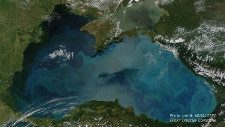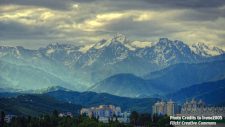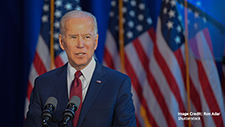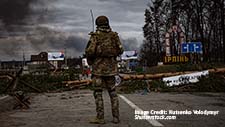
Svante E. Cornell
Director
Svante E. Cornell is a co-founder and Director of the Institute for Security and Development Policy. He is the Director of the Central Asia-Caucasus Institute & Silk Road Studies Program, the Joint Center operated by ISDP in cooperation with the American Foreign Policy Council (AFPC). Dr. Cornell is also a Senior Fellow for Eurasia at AFPC. His main areas of expertise are security issues and politics in Southwest and Central Asia, with a specific focus on the Caucasus and Turkey. He is the Editor in Chief of the Joint Center’s bi-weekly publications, the Central Asia-Caucasus Analyst and Turkey Analyst, and oversees the Joint Center’s Silk Road Papers series of occasional papers.
Dr. Cornell is the author of several books, including Small Nations and Great Powers, the first comprehensive study of the post-Soviet conflicts in the Caucasus, and more recently, with S. Frederick Starr, The Long Game on the Silk Road: US and EU Strategy for Central Asia and the South Caucasus. His articles have appeared in numerous leading academic and policy journals as well as the U.S., European, and regional press. Cornell previously served as an Associate Professor of Government at Uppsala University and Associate Research Professor at Johns Hopkins University’s Paul H. Nitze School of Advanced International Studies. He was educated at the Middle East Technical University in Ankara, Turkey, and holds a Ph.D. in Peace and Conflict Studies from Uppsala University. He is a member of the Swedish Royal Academy of Military Science and a Policy Advisor to JINSA’s Gemunder Center for Policy.
Publications by Svante E. Cornell
-
A New Spring for Caspian Transit and Trade
Major recent shifts, starting with the Taliban victory in Afghanistan and Russia’s war in Ukraine have led to a resurgence of the Trans-Caspian transportation corridor. This corridor, envisioned in the […]
-
Promise And Peril In The Caucasus
America’s national security bureaucracy separates the Caucasus and the Middle East into different bureaus, with Central Asia in yet another office. This is part of the reason the U.S. has […]
-
Joe Biden’s Approach To Eurasia Is Stuck In The Past
Introduction: With considerable pomp and circumstance, the Biden administration recently unveiled its signature National Security Strategy. The document, intended as an authoritative expression of the Administration’s priorities in the field of […]
-
Hotet mot Väst är imperialism, inte diktatur
Introduction: (Article in Swedish) Rysslands oprovocerade anfallskrig mot Ukraina har lett till en debatt om hur västvärlden i framtiden kan förhindra liknande övergrepp. Många har noterat att världen har blivit […]
-
Kazakhstan’s June Referendum: Accelerating Reform
Introduction: The violence of January 2022 exposed both the demand for greater change in Kazakhstan’s society, as well as elite conflicts involving influential forces seeking to block President Kassym-Jomart Tokayev’s […]




